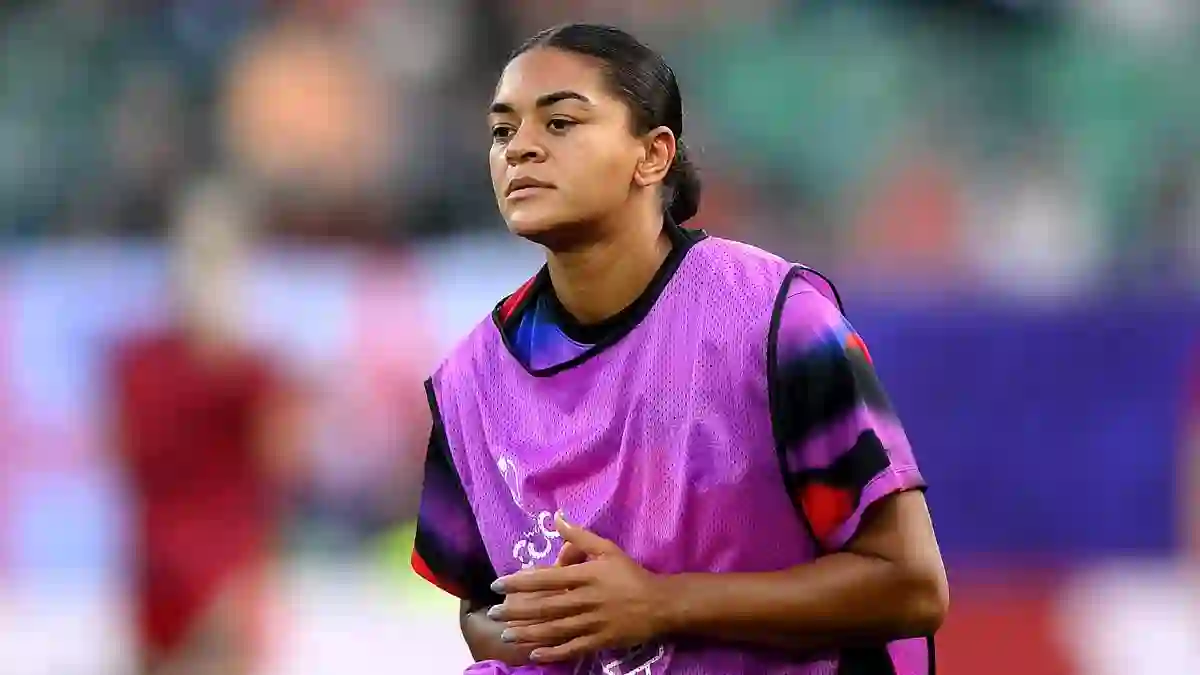The women’s game is on a historic rise—stadiums are packed, TV ratings are climbing, and young girls everywhere are dreaming of becoming the next football star.
But while the action on the pitch shines, there’s a darker, more painful reality playing out off it: racism is still running rampant, especially online.
Recently, England defender Jess Carter bravely spoke out about the wave of racist abuse she received during the UEFA European Women’s Championship.
Her decision to step away from social media was more than just self-care—it was a wake-up call about how much still needs to change.
Support From Inside the Camp
Jess’s courage didn’t go unnoticed. She had the full backing of England head coach Sarina Wiegman, her teammates, and the Football Association (FA).
In a rare and commendably quick response, the FA wasted no time.
Within hours of her statement, they had contacted UK police and started working with social media companies to track down the perpetrators.
It was a powerful message: racism would not be ignored, and those behind it wouldn’t be allowed to hide behind anonymous usernames.
The Law Is on Our Side—Now It Must Be Enforced
Thanks to the Online Safety Act, which came into effect in October 2023, social media platforms now have a legal duty to protect users from harmful content—including hate speech and racism.
It’s a major step forward, and Ofcom is responsible for enforcing it.
But laws only matter when they’re properly upheld. We need to see consistent, visible action.
Racism can no longer be something we just condemn with words—it needs to come with serious legal and cultural consequences.
Racism Isn’t New—It’s Just Evolved
Racism in football isn’t a new issue. For older generations, abuse happened face-to-face—on the pitch, in the stands, in the streets.
Today, that hatred has gone digital, with players facing a relentless 24/7 barrage online.
The format might have changed, but the damage is the same.
And so is the solution: hold people accountable. Whether in person or behind a screen, there has to be zero tolerance.
Beyond One Team—It’s a Global Issue
Unfortunately, Jess Carter’s experience isn’t isolated.
Khadija Shaw, a standout Jamaican striker for Manchester City, also became a target of racist abuse—despite being a role model both in the Women’s Super League and back home in Jamaica.
Once again, her club, teammates, and fans rallied behind her.
The message was clear: prejudice has no place in football. But while solidarity matters, it’s not enough on its own.
This fight must extend beyond club walls and international borders.
Growth Requires Protection
As women’s football continues to grow, it’s bringing in girls from all backgrounds—which is fantastic.
But that growth comes with a responsibility to protect.
These young players need to know that they’re entering a safe, supportive space that doesn’t tolerate discrimination in any form.
We also need to think beyond the pitch.
Girls need to see clear pathways into coaching, leadership, and governance, so they know they can shape football from the sidelines, the boardrooms, and beyond.
Learning from Past Mistakes
Let’s not repeat what happened in the men’s game.
For decades, black players made up a huge portion of squads—43% in the Premier League, 38% in the EFL—but only a tiny fraction made it into coaching or executive roles.
Only 4.4% of coaches and 1.6% of administrators are black.
That kind of underrepresentation has held the game back.
If the women’s game wants to do better—and it can—it has to commit to inclusion now, before that same gap takes root.
Real Education, Real Change
Thankfully, some clubs are already showing how to lead.
The charity arms of professional clubs are working hard to challenge discrimination, and equality training—like the kind delivered by Charlton Athletic—is making a real difference.
But this kind of education shouldn’t be optional. Inclusion and anti-racism training must be mandatory, not just in football but across every sector that touches the game.
And to make long-term change, we should be teaching these values from a young age—embedding them into the national curriculum.
This Is About More Than Football
What Jess Carter endured is about more than one player or one team—it’s about human rights and social justice.
If we let racism creep into the foundations of women’s football, we’re betraying all the progress that’s been made.
As the Lionesses have rightfully said: “Those behind this online poison must be held accountable.”
The Time for Stronger Action Is Now
If football wants a better future, it can’t rely on goodwill alone.
The time has come for stronger accountability, real regulation, and an unshakable commitment to equality, diversity, and inclusion.
That means not just inside clubs, but embedded in how the sport is governed.
Only then can women’s football truly thrive—and be a space where every player, from every background, feels seen, respected, and safe.
